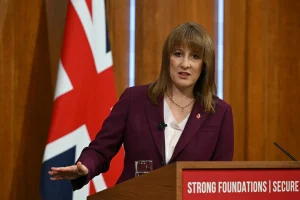What kinds of litigation do you most commonly engage with as an expert witness?
I am very fortunate to receive a myriad of topics to provide an opinion on, such as disputes regarding:
- Matrimonial – valuations of family assets.
- Contract – usually with contractors for building works, but also with developers.
- Neighbour – issues with noise intrusion; escape of livestock; unauthorised tree/hedge removal; boundaries.
- Inheritance – valuations for Capital Gains Tax; division of property.
- Environment – Japanese knotweed; flooding; subsidence.
- Housing – landlord & tenant; disrepair.
- Contamination – the presence of asbestos hiding in plain sight.
- Nuisance – sound intrusion, usually from hard flooring (laminate), insufficient internal joining walls and on one occasion peacocks!
- Professional negligence.
The most common instructions are for valuation of matrimonial assets, meaning the family home or a portfolio of properties owned jointly by estranged couples. Valuations need to be handled very carefully, as some parties believe sufficient information can be obtained from estate agent details and this is where substantial sums can be lost. Only agents who are also registered valuers are able to provide accurate accounts, and for a belt-and-braces approach I would advise that a true valuation for litigation and the Court can only be provided by a Chartered Surveyor.
One area I have not been involved with to date is criminal proceedings, which I suspect is more to do with the funding available rather than the requirement for an expert opinion.
Can you tell us about the litigation trends you are currently seeing?
Within the past 18 months I have certainly noted a litigation increase related to construction and refurbishment issues. Perhaps this is due to a more discerning generation of homeowners or higher expectations regarding construction standards and timescales.
Only agents who are also registered valuers are able to provide accurate accounts.
Also, sadly, there is a trend of litigation against surveyors for alleged professional negligence in the reporting of issues. This may be a result of the significant workloads placed upon surveyors during the particularly busy pandemic period, which has seen a huge increase in the volume of work required, or as a reflection of a generation raised in a ‘compensation culture’ environment.
What work have you recently undertaken regarding claims for professional negligence?
As a Fellow of the Institution of Chartered Surveyors with more than 30 years of experience of residential surveys, my opinion is sought on issues with alleged negligent survey reports. In the recent past I have dealt with several claims covering a variety of issues including failed roof inspection, failure to detect significant asbestos, overlooked damp issues and reporting in relation to issues with conservatories. I am often surprised and dismayed by the standard of professional survey reports provided to clients which can tarnish the perception of my surveying profession.
As an expert witness, what challenges do you frequently encounter related to the instructions you receive?
My biggest bugbear is the number of poorly considered and drafted instructions received from lawyers. A recent example involved a firm who wanted my opinion on the difference between the value of a house and a bungalow. No information was provided regarding the location, size or indeed the age of the properties for comparison. I believe some instructions are just ineptly provided, but others may be attempts to steer my opinion in a particular direction by failing to mention critical details.
My biggest bugbear is the number of poorly considered and drafted instructions received from lawyers.
Other challenges include chasing missing documents not sent with instructions or having to deal with disgruntled parties providing access for inspection.
In addition to instructions from the legal profession, I also receive instructions from private individuals who have not yet secured the services of legal advisers. This occurs mainly because of solicitors who are unwilling or unable to pursue a claim unless they have an opinion from an expert supporting a greater than 60% prospect of success. This means that, in order to pursue a claim, individuals are left to send instructions without the legal wherewithal and at their own expense. Try as I do to assist with these clients, it can result in my report failing to address legal arguments required for a successful claim when, if they had had the legal support prior to my instruction, their case may have had better prospects.
What other challenges do you often encounter in your work?
My work very often involves on-site physical inspection to observe the issues with the property for myself. This has been particularly problematical during the pandemic, as to inspect a property I need to look at the whole of the structure, and for some properties my access has been limited by the occupants’ unwillingness or inability to vacate during the inspection. I cannot Zoom call a property!
I also encounter issues with claims for faulty building work or negligent reporting where the property has been refurbished or reconstructed, leaving very little evidence of the issue to see, and I am then reliant on the quality and quantity of document evidence to piece together a version of events and the issues. It is not usually the fault of the compromised party, but rather the speed of reconstruction versus the speed of litigation and preservation of evidence versus the need to make a living space habitable.
On occasion I am provided with information which does not ‘tell the whole story’ in the initial instructions. I then provide my report only to be presented with more information and a request to update or amend. This creates pressure in terms of time constraints and can have an adverse effect on the quality of the report. It is essential that all relevant information is provided in a timely manner, particularly where there are tight time constraints due to court deadlines. Many firms provide excellent instruction, although others can certainly be viewed as inadequate.
It is essential that all relevant information is provided in a timely manner, particularly where there are tight time constraints due to court deadlines.
Do you expect to see an increase in cladding-related litigation in the near future?
There have certainly been trying times for individual flat owners, contractors and developers following the Grenfell fire disaster. Whilst I have not received instructions for expert opinion in cladding litigation, it would not be a surprise to be approached in the future. I foresee claims for:
- Excessive removal costs of cladding;
- Excessive increase in annual service charges for flats with cladding;
- Claims for loss of opportunity to sell properties with cladding;
- Claims for false assertions to new purchasers for the need for fire safety certificates;
- Claims for devaluation of flats with cladding and other fire safety issues.
I believe the present lack of instructions is not due to the absence of litigation but the seemingly slow pace of proceedings to the ‘expert stage’. This usually occurs following months if not years of attempts to negotiate a settlement and arriving at an impasse requiring independent expert advice.
Are there any other changes or litigation trends that you expect to see in 2022 and beyond?
Poorly installed cavity wall insulation seems to be on the rise. I also expect valuation claims should there be any significant market adjustments, such as a decline in property values following the recent ‘boom’. This was also the case following the financial crisis in 2008 and it would not be surprising to see a similar trend in the near future.
[ymal]
I have also noted that homeowners are more discerning in works being carried out for refurbishment and construction, and I expect a continuation of litigation against poor construction works both on an individual client basis and potentially in the form of class action against some larger developers where the standard of construction has diminished.
Mark O’Hara, Director
89 Whiteladies Road, Clifton, Bristol BS8 2NT
Tel: +44 01179 730803
"I am Mark O’Hara FRICS, director of Osborne Irish Associates – a firm of residential chartered surveyors based in Bristol. In addition to a full workload of residential survey reports, I also undertake expert witness reports on a variety of property-related issues for individuals and solicitors. I operate an entirely independent company and do not sit on any insurance company or financial lending panels."






















